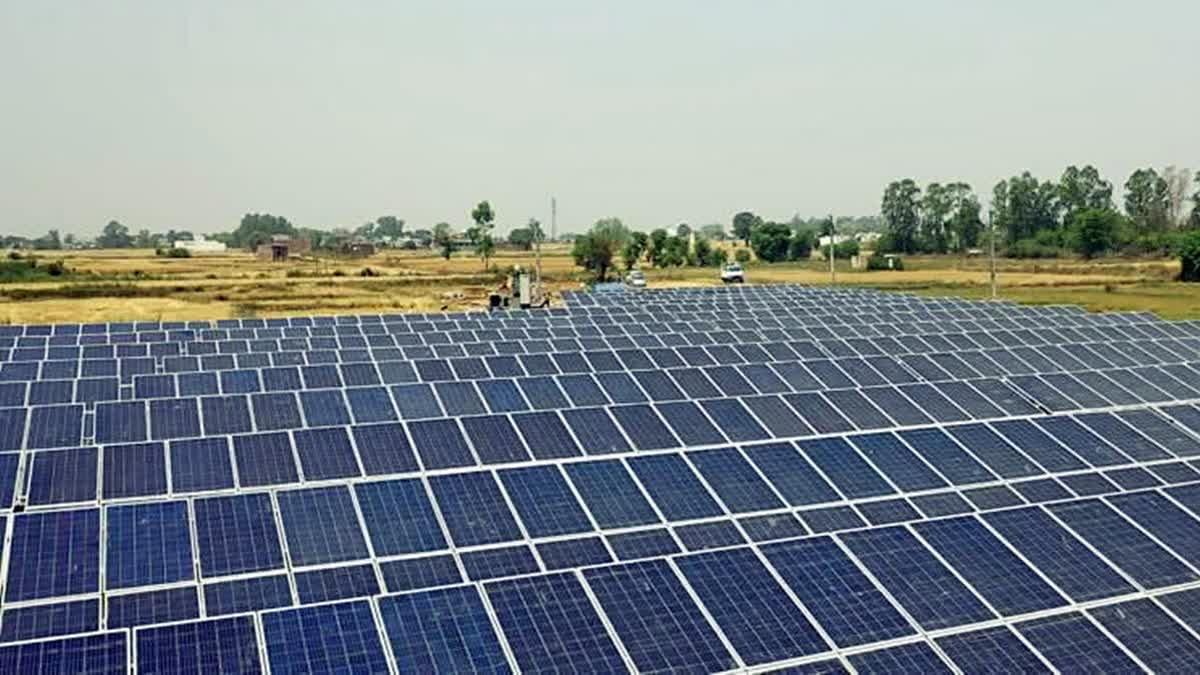Srinagar: With an aim to rely on solar electricity in power-deficit Jammu and Kashmir, the government is generating 35.2 Megawatts of solar power by installing solar plants on 4,108 government buildings. The government has begun installing solar power generation plants on all its buildings and has set a target of installing 30,000 solar generating units on rooftops.
Commissioner, Secretary of Science & Technology Saurabh Bhagat said that a total of 70 MW capacity of grid-connected solar rooftops would be installed on government buildings with an additional 238 MW under Renewable Energy Service Company (RESCO) mode by National Hydropower Corporation (NHPC) and Jammu and Kashmir Energy Development Agency (JAKEDA).
People in Jammu and Kashmir are facing power outages on a daily basis with consumers demanding electricity while the commercial sector is also facing losses due to electricity outages. The Power Development Department (PDD) argues that 100 per cent metering will ensure 24X7 electricity as it metering will increase revenue generation and minimise transmission and distribution losses.
Given the power deficient situation, the government is now asking the people to install solar power plants on their roofs to generate renewable power. Under the scheme PM Surya Ghar Muft Bijli Yojana, the government provides subsidised solar power plants for domestic consumers.
“A subsidy of Rs 33,000/kw is being given by GoI with an additional subsidy of Rs 3000/kw by UT government up to the installation capacity of 3 kw in favour of domestic consumers,” Principal Secretary, Power Development Corporation (PDD), H Rajesh Prasad said. Prasad said the financial institutions and banks are extending loans at an interest rate of 7 per cent for installations of solar rooftops.
He said the government has received 11,000 applications in Jammu and Kashmir for the installation of the solar plants while 617 installations have been done as of today.
Experts say that solar power plants need smart metering and 24X7 electricity with grid connectivity to be successful. Jammu and Kashmir are yet to achieve the target of 100 per cent metering as the exercise is underway across the UT under the Central-government-funded Revamped Distribution Sector Scheme (RDSS).
Under the five-year scheme, the contracting firms have installed six lakh meters across the UT, with a deadline of 2026 to complete 100 per cent metering of the consumers.
Given the tardy utilisation of the PM Surya Ghar Muft Bijli Yojana, Jammu and Kashmir Chief Secretary Atal Dulloo on Friday asked the power distribution companies (Discoms) of the government to intensify information and education campaigns for the installation of solar rooftops under the scheme. “Achieve installation of around 30,000 solar rooftops across the districts of the UT. The Discoms should designate nodal officers among their engineers to accomplish these tasks,” said Dulloo.
Read more: In Power Deficient Kashmir, People Slowly Switching Over To Solar Energy



